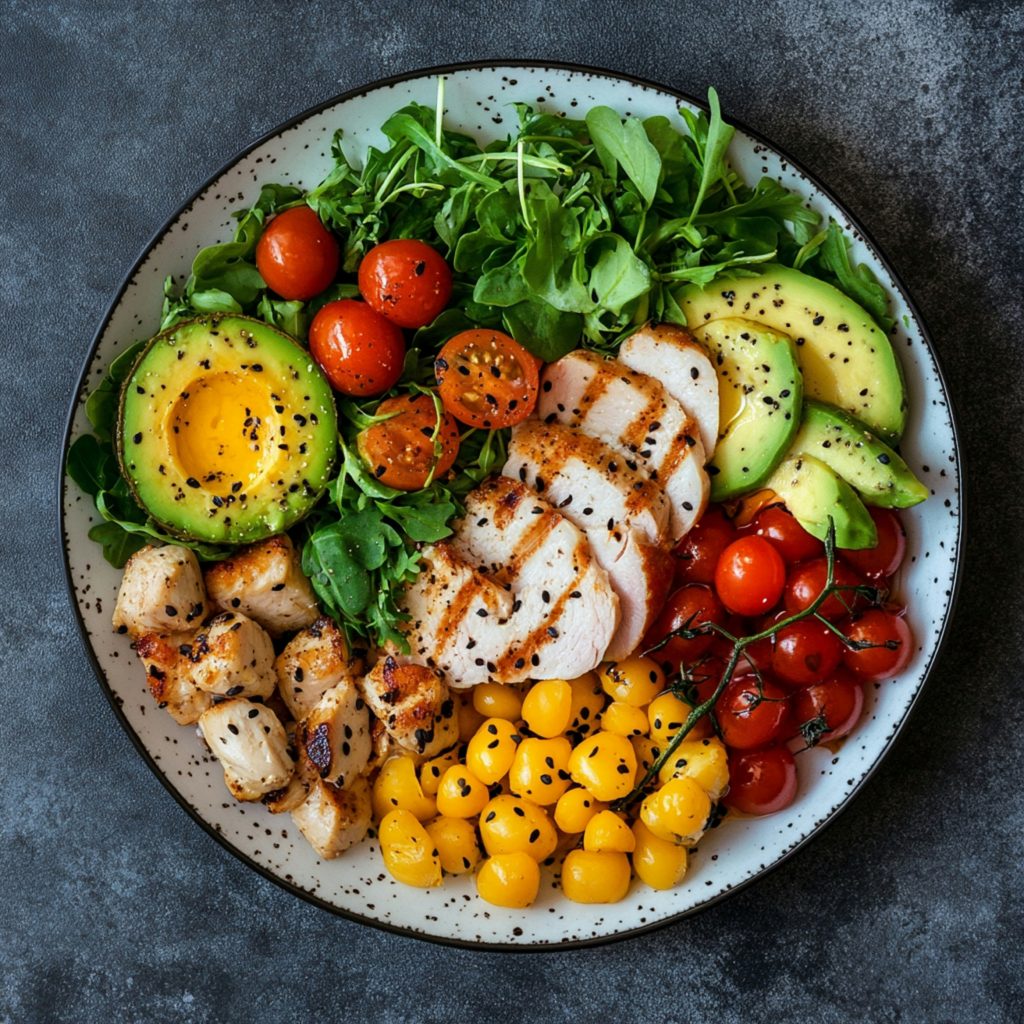Everywhere you look, something is getting “protein-ified.” Protein cereal, protein cookies, even protein sparkling water. But here’s the real question: how much protein do you actually need to reach your goals?
Whether you’re trying to build muscle, lean out, or just hold onto the progress you’ve made, protein plays a huge role. Let’s break down what the science says about protein.
Why Does Protein Matter Anyway?
Protein is the building block of your muscles. When you train, you’re breaking muscle tissue down. Protein is what helps repair and rebuild it stronger.
The right amount of protein can help you build lean mass in conjunction with consistent strength training, but that’s not the only reason you might want to try a high protein diet. Studies consistently show that higher protein intakes help preserve lean body mass during weight loss and improve body composition overall. In addition, protein helps you feel fuller longer, which can make it easier to stick to a meal plan while in a caloric deficit (more on that later in this article).
How Much Protein Do Women Need to Build Muscle?
Here’s the good news: the sweet spot is pretty clear.
- Research shows muscle growth really kicks in once you’re hitting at least 1.6 grams of protein per kilogram of bodyweight per day (Tagawa et al., 2022).
- To put that in perspective, if you weigh 70 kg (about 155 lbs), that’s 112 grams of protein per day minimum.
- Going a little higher—closer to 2.2 grams per kilogram—seems to give even more consistent results, especially for women who train hard (Helms et al., 2019).
Protein Needs by Phase
Your daily protein needs can vary slightly based on your goals.
Maintenance Phase
Think of maintenance as “cruise control.” You’re not trying to gain or lose weight—just staying where you’re at. For many, this is the off-season or simply living at a body comp you’re happy with.
👉 Protein target: 1.6–2.2 g/kg of bodyweight per day. This range is enough to maintain muscle and support recovery without overshooting calories (Helms et al., 2019).
Fat Loss Phase, aka “Cutting”
Cutting means eating fewer calories to shed body fat. This could be prepping for a show, leaning out for summer, or just getting lighter. When calories drop, your body is more likely to break down muscle—so protein becomes a shield.
👉 Protein target: ~2 g/kg or higher to protect lean mass while you’re in a deficit (Wycherley et al., 2012; Wycherley et al., 2021).
Growth Phase, aka “Bulking”
Bulking = intentional weight gain in the form of new muscle. For bodybuilders, this is the “off-season build.” For the average lifter, it’s any period where you’re eating in a small surplus to grow. Protein still matters, but carbs become equally important for fueling hard training.
👉 Protein target: 1.6–2.2 g/kg, with the higher end (closer to 2.0–2.2 g/kg) being smartest for maximizing growth. Pair it with enough carbs and calories to keep performance high (Helms et al., 2019).
How Much Protein Per Meal?
Research suggests about 0.4–0.55 grams per kilogram of bodyweight per meal is ideal (Morton et al., 2018).
Translation: for most women, that’s 20–40 grams per meal, spread across 3–5 meals a day.
Think:
- 3 scrambled eggs with a scoop of Greek yogurt on the side
- A chicken breast with veggies and rice
- A protein shake plus some nuts or fruit
Meeting Your Protein Needs (Without Getting Weird About It)
Yes, you can drink protein sparkling water if you want. But you don’t need gimmicks to hit your numbers. Stick to foods you actually enjoy and mix in some convenience options when life gets busy.
Some solid staples:
- Eggs and egg whites
- Chicken, turkey, lean beef
- Fish and shrimp
- Greek yogurt, cottage cheese
- Protein powder (super helpful if you’re on the go)
- Lentils, beans, tofu, edamame (great plant-based options)
The Bottom Line
You don’t need to stress over hitting the “perfect” number. What matters most is consistency. If you consistently aim for 1.6–2.2 g/kg of bodyweight split across 3-5 meals per day, you’ll be getting enough protein to build, maintain, or protect lean mass.



